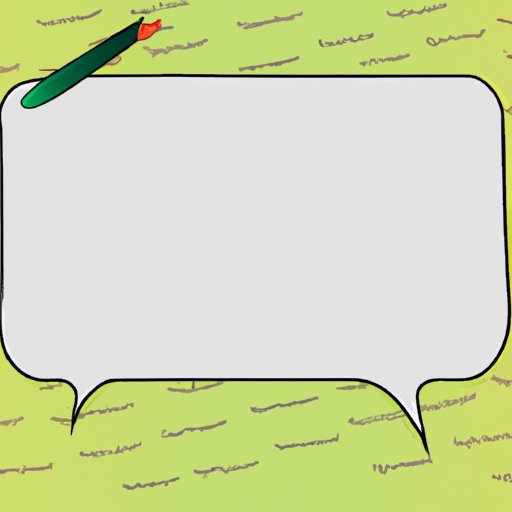Introduction
Conciseness is an important element of effective writing. It entails expressing your thoughts clearly while using the fewest words possible. When writing in a concise manner, you should avoid using unnecessary words or phrases that add no value to your work. As a result, your writing will become more direct, concise, and clear.
When done well, writing concisely can help readers to better understand the message you are conveying. It also allows readers to quickly grasp the main points without having to wade through long, complex sentences and paragraphs. Therefore, it’s important to learn how to write concisely if you want to make your writing more effective.

Outline Your Ideas Before Writing
The first step in writing concisely is to plan out your ideas before you begin drafting. This will help ensure that your writing is organized and focused. You should start by understanding the purpose of your writing so that you can determine the key points you want to convey. Once you have identified the main points, you can then develop an outline of your ideas, which will serve as a roadmap for the rest of your writing.
Brainstorming can also be useful when creating an outline. During this process, you should jot down all the ideas that come to mind related to the topic. This will help to generate more ideas and give you a better sense of direction as you move forward with your writing. Once you have outlined your ideas, you can then begin to draft your piece.
Use Short Sentences and Paragraphs
Using short sentences and paragraphs can go a long way towards making your writing more concise. Keeping your sentences short and to the point can help to reduce the amount of words used and make your writing easier to read. Aim for sentences that are no longer than 25 words and try to use simple and straightforward language whenever possible.
Longer paragraphs can also make your writing less concise. Breaking up longer paragraphs into shorter ones can help break up the text and make your writing more manageable. Aim for paragraphs that are no more than four sentences long and make sure each new paragraph introduces a new idea or concept.

Avoid Unnecessary Words and Phrases
Unnecessary words and phrases can add clutter to your writing and make it more difficult to read. To make your writing more concise, you should identify words and phrases that don’t add value to your work and replace them with more concise alternatives. Commonly used unnecessary words and phrases include “that”, “really”, “very”, “in order to”, and “the fact that”. Replacing these types of words and phrases with simpler alternatives can help to streamline your writing and make it more concise.
Eliminate Fluff and Redundancy
Fluff and redundancy can also make your writing less concise. Fluff is unnecessary details or filler content that does not add anything to your writing. It can take the form of overly descriptive language or irrelevant information. Redundancy occurs when you repeat the same point multiple times, often using different words or phrases. To make your writing more concise, you should look for fluff and redundancy and remove any unnecessary content.
Edit and Revise Thoroughly
Once you have finished writing, you should edit and revise your work thoroughly. Reading your work aloud can help you to identify areas where you can make improvements. Pay close attention to the length of your sentences and paragraphs and look for opportunities to simplify your language. Additionally, you should review your work for clarity and accuracy to ensure that it accurately conveys your message.
Conclusion
Being concise in your writing is an important skill that can produce more effective and engaging pieces. By following the tips outlined in this article, you can learn how to write concisely and improve the quality of your writing. Outlining your ideas before you begin drafting, using short sentences and paragraphs, avoiding unnecessary words and phrases, eliminating fluff and redundancy, and editing and revising thoroughly are all strategies that can help you to write more concisely.
With practice and dedication, you can become a more concise writer and create powerful pieces that effectively communicate your message. Writing concisely can help your writing stand out and make it easier for your readers to understand and appreciate your work.
(Note: Is this article not meeting your expectations? Do you have knowledge or insights to share? Unlock new opportunities and expand your reach by joining our authors team. Click Registration to join us and share your expertise with our readers.)
